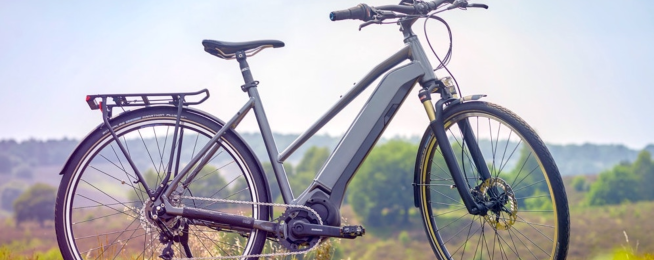The scooter that whizzed past you as you walked to the office this week, and the e-bikes you see trundling off at the lights each day are part of a new transport landscape spreading across our cities and suburbs.
E-bikes are one of the most sustainable modes of transport and a super-weapon in the battle against climate change.
And it’s time our politicians caught up.
The Australian e-bike market is well advanced. E-bikes are here to stay. And for the better.
But with the Victorian election on the horizon, we need a real-time action plan for implementing their use into Victoria’s shifting transport system.
The closest we have to a framework is the Victorian Cycling Strategy 2018-2028, which was published by the Victorian Government in 2017. The strategy contains nothing other than a short paragraph identifying e-bikes as an ‘emergent technology’.
Our transport use has changed in ways that were unforeseeable five years ago.
We endured a pandemic that shifted our transport behaviours. People have chosen to continue to work
from home, which means more workers will travel locally and there are more opportunities for people to ride.
The gig economy has risen to unprecedented heights. Bike and e-scooter share systems have re-emerged in Melbourne, and patronage is higher than ever.
There has never been a better time to create a five-year update of the state’s bike riding strategy, with clear and focused action plans for rolling out critical bike projects.
So why are we sitting on our hands and not putting together an action plan for a transport solution already in high demand and with a much larger impact on carbon emission reductions?
The transport sector accounts for 16 per cent of Australia’s greenhouse gas emissions, and this is tipped to grow.
Fuel prices are skyrocketing, and our roads are congested. The Victorian Integrated Survey of Travel and Activity (VISTA) shows that just under 50 per cent of all vehicle trips across the state are less than 5 kilometres, a distance easily achieved by bike.
It is clear from last week’s Federal Budget announcements that the Albanese government’s sights are set on solving transport-related emissions problems by pushing the roll-out of electric vehicles.
Yet, a report by the Institute for Transport Studies in the UK early last year found that up to 24.4 million tonnes of CO2 could be saved per annum by directly substituting car travel for e-bike use. This amount is roughly 30 per cent of Australia’s transport-related emissions in 2021.
Last year, the Victorian Department of Land, Water and Planning released its Zero Emissions Vehicle Roadmap with a target of half of all light vehicle sales by 2030 to be zero emissions vehicles. We have no equivalent strategy for e-bikes.
Around 60,000 e-bikes were sold across Australia in 2021, according to research by Bicycle Industries Australia. That’s almost three times the 20,665 electric vehicles sales reported by the Electric Vehicle Council in the same year.
And while growth of both modes of transport are an important change, let’s remember that the emission reductions potential for electric vehicles and e-bikes are dramatically different.
A popular-model of electric vehicle, charged on the Victorian grid emits 209.1 grams of CO2 per kilometre travelled (PKT), while an e-bike emits a miniscule 6 grams of CO2 PKT.
Let’s not dismiss the accessibility, affordability and practicality of e-bikes either.
But it’s not a matter of making a choice between electric vehicles and e-bikes. Both are here to stay.
While electric vehicles are a great solution to make transport system more sustainable, we shouldn't put all our eggs in one basket. We need the next Victorian government to identify and roll out alternative transport solutions for a better, more sustainable future.
Become our friend
Find out more about Bicycle Network and support us in making it easier for people to ride bikes.


